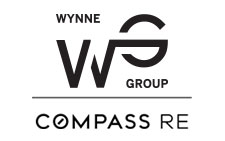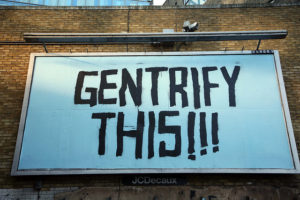Gentrification, or the process of improving property values by rehabbing and/or replacing deteriorating houses and business structures is alive and well all over the country. In Philadelphia, the “City of Brotherly Love,” this undergoing urban development has raised a few eyebrows and has some long-time residents not feeling quite as brotherly as they once did. Philadelphia, known for being a city of neighborhoods, each with a unique and individual ethnic atmosphere, may now be headed into a more homogenized, less segregated city, but is it better or worse?
Gentrifying Neighborhoods
Many residents are resistant to change, regardless if it is a good or bad thing, and feel gentrification is robbing Philly of character. Homes may be coming more habitable, valuable and pleasing to the eye, but new homeowners seem to have less personal investment and less incentives to remain very long. The process of buying homes in Philadelphia cheaply, rehabbing them and selling for a profit to upper and middle income residents will indeed improve property values; but what happens to the lower income families and businesses that are being displaced?
Click to get pre-approved for a home mortgage!
In March of this year, Philadelphia residents met at the Church of Advocate in North Philadelphia to share stories, opinions and feelings about gentrification. It was touted as an “emergency town hall meeting on the crisis facing black Philadelphians.” Most felt the demise of their neighborhoods for revitalization would lead to higher property taxes and rents, forcing many out of their homes. One group of activists is making plans to appeal to the United Nations that gentrification is a human-rights violation when an economic development policy displaces an ethnic group.
According to a New York Times article however, information has been noted that many officials of Philadelphia, like Darrell L. Clarke, president of the Philadelphia City Council, are in favor of reducing or freezing property taxes to promote neighborhood stability, preserve the heritage and reward those long-time residents for “toughing it out.”
The Role of Schools to Gentrification
Many feel for gentrification to properly improve communities and provide a safe environment and a higher quality of life for families in Philadelphia, it is imperative the school system be improved. There is an overall decline in North Philly schools resulting in poor education techniques, teachers, crumbling inner city buildings and test results below standard. There is a high percentage of high school students truant on any given day, with excuses that their “white” teachers do not relate to their culture and needs.
Research on the “Top 10 Fastest-gentrifying Public Schools in the United States,” has only one Pennsylvania school listed; Bywood Elementary in Upper Darby, which has a 96% black enrollment. They have shown a significant decrease in poorer student test scores (-36%) through gentrification as of 2011. The ONLY above-average rated school in Philly is an extremely desired school and hard to get into. Penn Alexander School for Kindergarten through eighth grade recently changed from a first come, first served enrollment sign-up to a lottery system. Before the lottery, parents would sometimes camp out in front of the school for days to ensure their children would be enrolled. Penn Alexander has a 17 to 1 student to teacher ration for kindergarten and 23 to 1 for other grades. Besides having excellent test grades, they have a library, computer labs, gardens and full time Arts and Technical staff. Almost 20% of the school enrollment are children of faculty members.
Lea School, the nearest to Penn is lower in all test scores except for 6th grade math and 7th grade reading. The difference between the two schools is telling: Penn had no serious incidences and only 1 suspension last year, while Lea (the next best school in Philly) had 6 serious altercations and 39 student suspensions. The “catchall” area where residents must live for their children to be eligible for Penn Alexander has had home values rise dramatically over all other areas. The Philadelphia School system has reached its lowest levels at the same time when gentrification of neighborhoods is in full swing. According to some experts, the Philadelphia gentrification project is missing a major element: better schools.
Conclusion
At the end of the day, gentrification will always be seen in both a negative and positive light, and most of the time it depends on who you ask. Because there are so many things tied to gentrification including but not limited to the education system, crime rate, property value, etc, gentrification seems to be topic that will always need to be handled with kid gloves. As a realtor in Philadelphia, I am constantly helping people buy and sell homes in gentrified areas, and although I see the many benefits mentioned in this article, I’m just as concerned about the potential negative impact displacing families will have on the fabric of Philadelphia.
Do you think the surge of gentrification in Philadelphia is more negative or positive, and how do you think it impacts the school system? Will gentrification always have a bad rap or will the public welcome it with open arms? Looking forward to hearing your below!
Sources:
http://educationnext.org/the-10-fastest-gentrifying-public-schools-in-the-u-s/
About Agent Lady: Cherise Wynne is a leading real estate agent in Philadelphia, helping home buyers and sellers navigate the City of Brotherly Love, with a special focus on first time home buyers. To chat about getting started with your first time home buying experience, click here.



